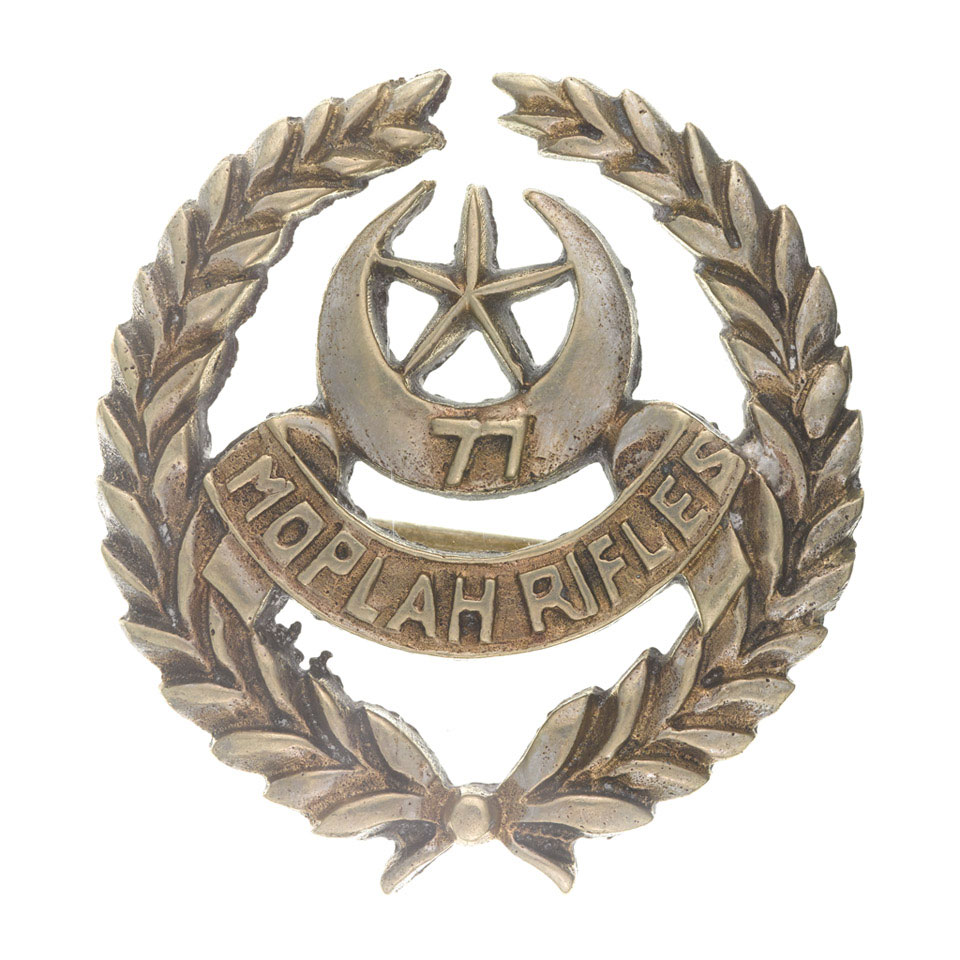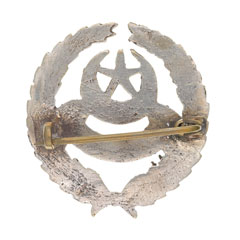
Online Collection
« Prev - 1 of 1 results - Next »
Pugri badge, 77th Moplah Rifles, 1903-1907
White metal badge with open-work crescent with regimental number, '77', and a five-pointed star, with a scroll below, bearing the unit title, 'Moplah Rifles', within a laurel wreath.
The pugri or pagri is a form of headdress.
The Moplahs, or Mappilas, were a Moslem people from the Malabar coast in India, and during the 19th century won themselves a somewhat undeserved reputation as violent troublemakers. An official report had labelled them 'a turbulent and fanatical community'.
In 1902, the Moplah Rifles was raised as the Madras Army endeavoured to recruit more 'warlike' men into its ranks under the influence of the prevailing 'martial races' theory. The 17th and 25th Madras Infantry were redesignated the 1st and 2nd Moplah Rifles. In 1903 these battalion-sized units were renamed the 77th and 78th Moplah Rifles. Both units were disbanded in 1907.
The predecessor unit of the 77th Moplah Rifles was the 17th Carnatic Battalion, which was raised in 1777 and served in the 2nd Mysore War (1780-1784) and the 3rd Maratha War (1816-1819). The unit became the 16th Madras Native Infantry in 1824 and the 17th Madras Infantry in 1861. The unit served in the 3rd Burma War (1885-1887). The 1st Moplah Rifles was disbanded in 1907.
From the Field Marshal Sir John Chapple Indian Army Collection.
NAM Accession Number
NAM. 2013-10-20-52-180
Copyright/Ownership
National Army Museum Copyright
Location
National Army Museum, Study collection
Object URL
https://collection.nam.ac.uk/detail.php?acc=2013-10-20-52-180


